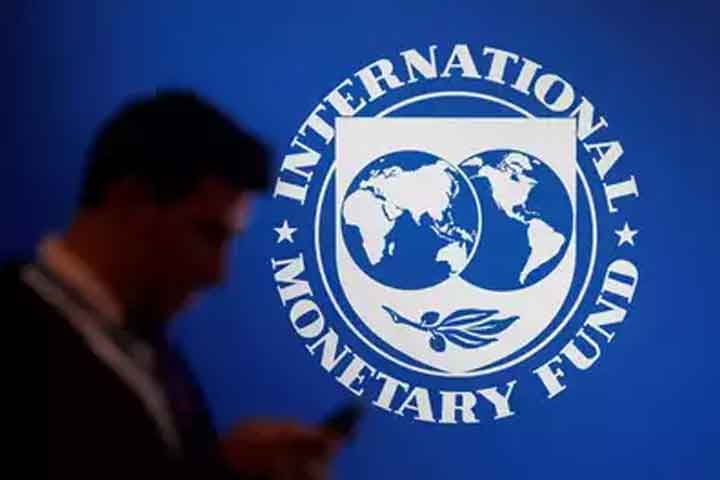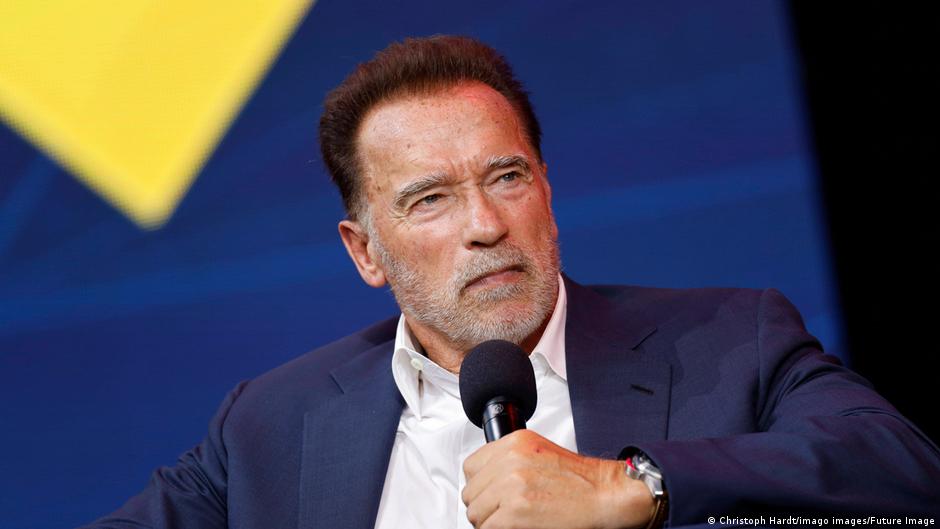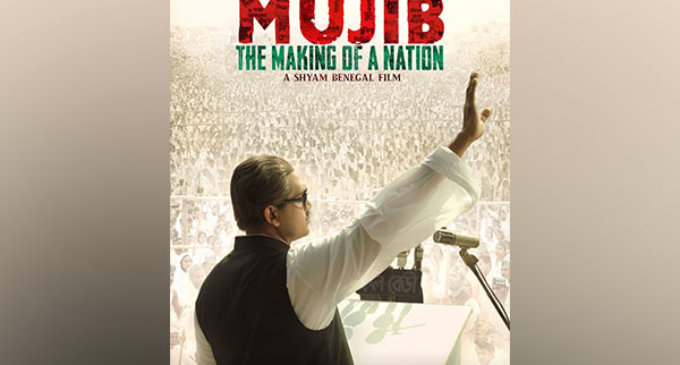Arnold Schwarzenegger still going strong at 75
Mister Olympia, action hero, governor, environmentalist and Kremlin critic: Arnold Schwarzenegger is going strong as he celebrates his 75th birthday.
The Terminator, an android killing machine from the future, is notorious for being virtually indestructible. Arnold Schwarzenegger has played the title role several times during his career, and it almost seems as if he has internalized his alter ego’s essential characteristic. At age 75, he is still in front of the camera, not so much as an action actor, but as a Kremlin critic and environmentalist. His muscles may have softened, but his words are strong. He uses his popularity to take a stand on global events via his social media channels. Speaking to the Russian people, among whom he is widely admired, following the Ukrainian invasion, he said via video that they are being lied to and this is an illegal war.
Your lives, your limbs, your futures are being sacrificed for a senseless war condemned by the entire world, he said in a rousing nine-minute video posted to Twitter in March that was viewed near 50 million times.
Work of a sculptor
Arnie, as he is affectionately known, was born on July 30, 1947, in Thal in the Austrian region of Steiermark. As a child, he was active in sports, including soccer, boxing and swimming. At age 15, he first entered a weightlifting studio. Over the next few years, the young Schwarzenegger would spend most of his time fine-tuning his muscles. You have to train each muscle individually. It’s like the precise work of a sculptor who works on marble with a hammer and chisel - not exactly like Rodin, but similar, Schwarzenneger told the German weekly Die Zeit in 2012. In 1967, he became the youngest Mr. Universe. Starting in 1970, he earned the Mr. Olympia title - the most important bodybuilding award - six times in a row. He readily admits that he took steroids, adding that they weren’t banned at the time.
Welcomed by Andy Warhol
When Schwarzenegger immigrated to the US in 1968, his impressive appearance soon caught the attention of the film industry. Known under his stage name, Arnold Strong, he got his first role in 1969 in Hercules in New York. At the same time, Schwarzenegger also found his way into the art scene and got to know Pop Art icon Andy Warhol. He was fascinated by my energy and my strength, the bodybuilder told Die Zeit. I worked as a model for him, and he introduced me to other artists like Jamie Wyeth and Laraine Newman. Schwarzenegger also recalled how Warhol introduced him to producers, fundraisers and actors like James Caan, Woody Allen and influential people like Jackie Kennedy.
Years later, Schwarzenegger would become part of the Kennedy family himself, when he married Maria Shriver, the niece of former US President John F. Kennedy, in 1986. Now well connected, his film career took off in 1977. Schwarzenegger surprised critics by winning a Golden Globe for Best Acting Debut in a Motion Picture for his bodybuilder docudrama Pumping Iron. In 1982, he became famous as Conan the Barbarian, and in 1984 he was offered the main role in a B-movie called The Terminator, which, in Schwarzenegger’s own words, was a big challenge for him. Thanks to his convincing performance as the android killer, the low-budget production by director James Cameron quickly rose to cult status.
The Governator
By then, Schwarzenegger was in high demand, and his earnings continued to rise. From the late 1980s until the early 1990s, he enjoyed a great deal of commercial success not only with action movies, but also with comedies like Twins and Kindergarten Cop alongside Danny DeVito. Nevertheless, the hype had ebbed. After his third performance as The Terminator in 2003, Schwarzenegger said farewell to the film world and launched his third career, this time as a politician. When he ran for governor in California in 2003, he brought along the sword he used to carry as Conan the Barbarian to Sacramento, presenting himself as the strong man the state needed to rescue it from heavy debt, while calling his political opponents wimps. It took him a while, however, to get used to his new profession as governor. As an actor, you can rely on the screenplay, but a politician doesn’t have one. Every day, every hour, it’s incredible how many problems you’re faced with - social welfare, poverty and overflowing jails. You wake up in the morning to 2,000 bush fires in California, or somebody is sitting in a prison cell waiting to be executed at midnight, and you get a call, saying, Governor, you could stop it, he told the Frankfurter Allgemeine Zeitung in 2013.
Schwarzenegger, a Republican, is a supporter of the death penalty and turned down two pardon opportunities as governor before lethal injection was declared unconstitutional in California in 2006, effectively ending capital punishment in the state. Following his two terms, he returned to familiar terrain and filmed yet another edition of Terminator in 2015. A vocal critic of President Donald Trump, Schwarzenegger took over the former president’s casting show, The Apprentice, in January 2017, but dropped it after one season due to bad ratings.
Environmentalist and Kremlin critic
But only one role has not been enough for the former politician for a long time. Above all, Arnold Schwarzenegger has made the fight against climate change his mission. In his speeches, such as at this year’s Austrian World Summit, an annual climate conference in Vienna co-hosted by his Schwarzenegger Climate Initiative platform, he focuses on new technologies and urges a shift away from fossil fuels. We have blood on our hands, the ex-bodybuilder has said of Europe financing Moscow’s war of aggression in Ukraine with its billions in payments to Russia for oil and gas imports. He also doesn’t mince words when criticizing politicians in his own country. In an emotional video released immediately after the storming of the US Capitolon January 6, 2021, Schwarzenegger called Donald Trump a liar, a coup plotter and a failed leader. He will go down in history as the worst president ever. But America will overcome these dark days and come back stronger because we now understand what we have to lose, he says in the video. With his eventful life, Austrian-born Schwarzenegger represents the embodiment of the American dream like few Europeans before him. As Terminator (1984), he coined the legendary phrase I’ll be back. Arnold Schwarzenegger has always kept this promise and, even at 75, has no plans to leave the stage anytime soon.
04 Aug 2022,20:40
















 Live Tv
Live Tv









